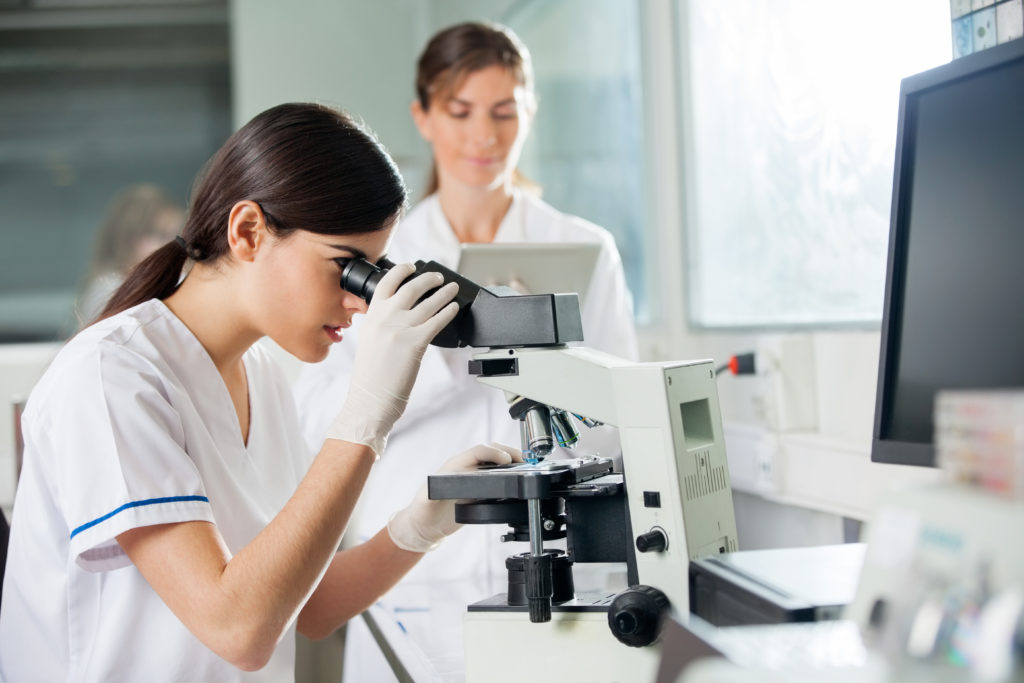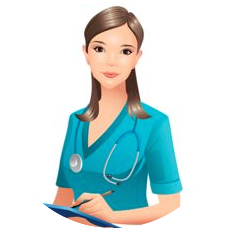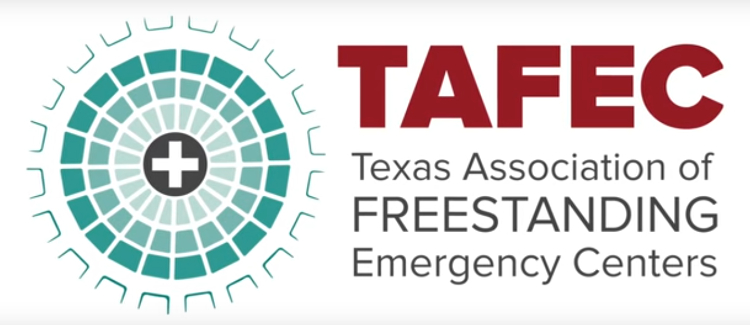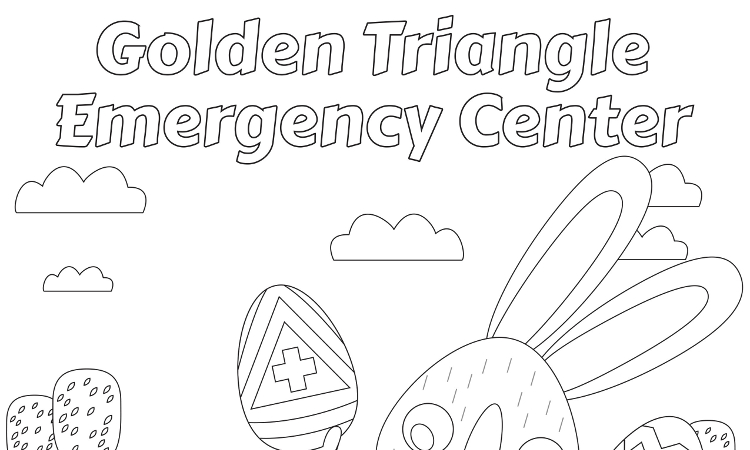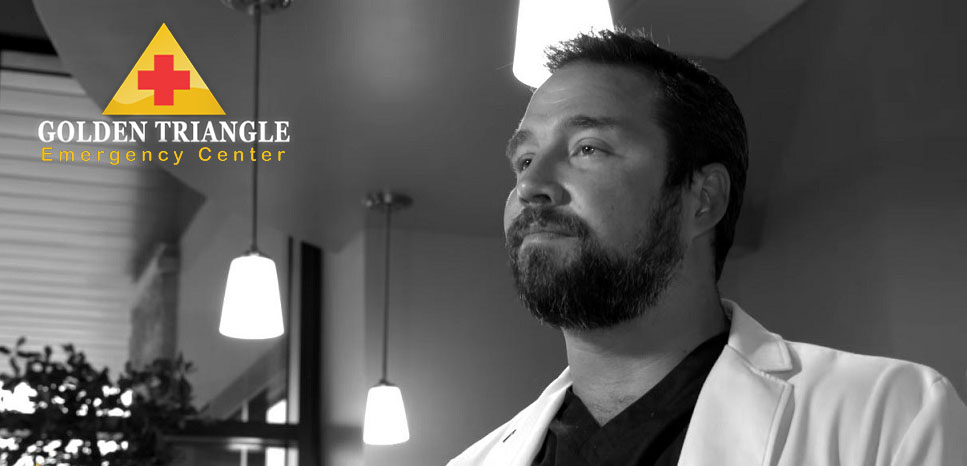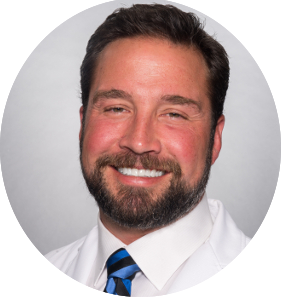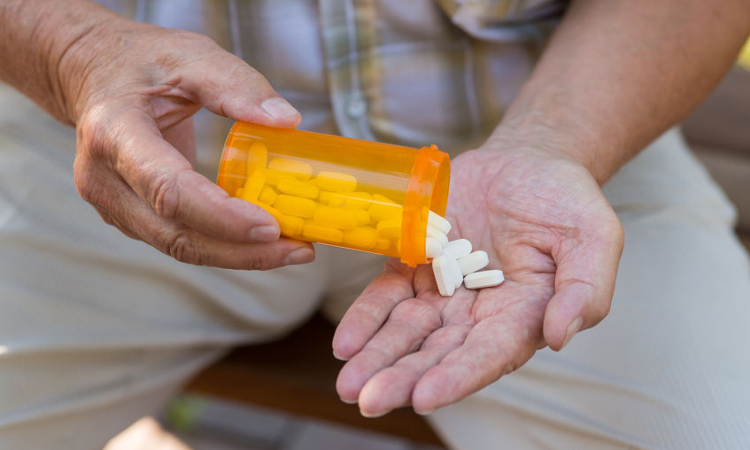Posts by admin
Learn How the Lab at GTEC Impacts Your Emergency Care Experience
Golden Triangle Emergency Center is proud to provide our community with an unparalleled emergency care experience, but it’s not just physicians and nurses who make this possible. Our team of highly-trained and dedicated lab professionals are a crucial part in ensuring patients are diagnosed and treated quickly and accurately.
During this Medical Lab Professionals Week, we’re going to hear from one of our very own lab technicians, Annie Kovatch, RN, on how they affect the emergency care experience. Keep reading to learn more.
Q: How does the lab impact the patient’s emergency care experience?
A: I am able to facilitate their care and help the physician decide, alongside the patient, what is the best treatment plan. At Golden Triangle Emergency Center, our lab is vital in ensuring patients are diagnosed and treated quickly. This means they can be sent home and on their way to feeling better faster than at a traditional emergency room.
Q: What made you want to be a lab professional?
A: I was interested by the correlation between sickness and the way the body handles it on its own. I enjoy getting to look deeper into what is making the person sick and how I can help make them better.
Q: What’s a typical day in the lab look like for you?
A: We usually see a significant amount of patients coming to us in hopes of a diagnosis due to their primary care physician being unable to resolve their problems, or a patient is unable to find someone to help them. Occasionally, we get patients with serious, even life-threatening ailments that need immediate medical attention. We’re also able to take care of occupational health and work accidents, which is very rewarding and interesting.
Q: What’s it like working at a freestanding emergency room, like Golden Triangle Emergency Center?
A: I love working at Golden Triangle Emergency Center. The comradery and the ability to bond and develop relationships with our patients is my favorite part. Before, while at a large trauma center, we were all so busy we didn’t have time to spend with the patient and learn about their medical history. Having the opportunity to spend time getting to know our patients is a great advantage to working at a freestanding emergency center.
Golden Triangle Emergency Center provides no-wait, personable and accessible emergency care in an upscale, concierge-level facility 24 hours a day, 365 days a year. Our team uses the most advanced technology available, including X-Ray, Ultrasound and CT Scanner, to diagnose and treat our patients as effectively as possible.
Want to learn more about our services? Visit this page to see a complete list of our emergency care capabilities.
Nutex Health, Inc supports you and your family’s health. You can depend on Golden Triangle Emergency Center or any one of our concierge-level, freestanding emergency facilities to deliver the emergency care you deserve, 24 hours a day, 365 days a year.
Watch GTEC Patient Testimonials Videos
Watch GTEC Patient Testimonials Videos
Golden Triangle Emergency Center is committed to outstanding patient care and patient satisfaction. We pride ourselves on delivering the gold standard in emergency care and are always excited to receive feedback from our patients. These testimonials are particularly gratifying because they exemplify what our company stands for. The Texas Association of Freestanding Emergency Centers (TAFEC) recently released these two videos interviewing patients about their experiences at GTEC Port Arthur and GTEC Orange.
What Jeanne Martin Had to Say About GTEC Port Arthur
In the above video Jeanne Martin discusses her experience as a patient at our Port Arthur facility. Jeanne describes the way she greeted right away by the receptionist as soon as she entered the facility and how impressed she was with the level of attentiveness from all the staff. She was particularly pleased by how well she was kept informed about the tests that were being done and she appreciated the quick results.
Jeanne was suffering from a heart condition that required her to be transferred to a hospital for additional care. She was pleased with how convenient the experience was and how she was able to be admitted directly into the hospital without having to wait in the hospital emergency room. Jeanne was also pleased with GTEC Port Arthur’s convenient location and says, that she would recommend our facility to anyone and everyone and will be back again if she’s in need of emergency medical care.
What Jimmie Wesson Had to Say About GTEC Orange
In the above video Jimmie Wesson discusses his experience as a patient at our Orange facility. Jimmie was experiencing a serious situation in which his pulse rate was too low. In these critical moments, Jimmie was relieved that he received immediate care as soon as he entered our facility. He commented that there was no wait whatsoever and that he was able to receive attentive, responsible care that covered every aspect of his health situation from a quick reliable diagnosis to treatment.
Jimmie says that he first came to the Orange center because it had been recommended by other satisfied patients and because the location was very close to where he lived and convenient to visit. He says that the care he received was comparable to or superior to the treatment he would have received at a hospital and would recommend our facility to everyone.
Golden Triangle Emergency Center’s goal is always to provide the resources, including health information our community needs to stay safe and healthy. However, when sickness or injuries do strike, Golden Triangle Emergency Center is there 24/7, 365 days a year with gold standard in emergency and industrial care.
Nutex Health, Inc supports you and your family’s health. You can depend on Golden Triangle Emergency Center or any one of our concierge-level, freestanding emergency facilities to deliver the emergency care you deserve, 24 hours a day, 365 days a year.
GTEC Holds 2017 Easter Coloring Contest
Golden Triangle Emergency Center is pleased to announce that we will be holding our 2017 Easter coloring contest, effective now through Wednesday, April 12th at each of our locations. Winners will be announced at our annual Easter Egg Hunt and celebration! Please see the information below for the contest taking place in your area.
Our Port Arthur Coloring Contest and Celebration
Golden Triangle Emergency Center invites children in K-5 grade to participate in our coloring contest. Attached is a sheet for each student to color however they would like. Turn in the attached artwork to Golden Triangle Emergency Center (8035 Memorial Blvd Port Arthur, TX 77640) by April 12th with the child’s name, grade, school, and phone number written on the back for a chance to win a prize. There will be a boy and a girl winner from K-2 grade and 3-5 grade. Each winner will win an Easter Basket filled with Easter goodies. The winners will be announced on Saturday April 15th at the Annual Easter Egg hunt held at Doornbos Park. There will also be food, drinks and a whole lot more for your children to enjoy. The festivities are from 9-11am.
Our Orange Coloring Contest and Celebration
Golden Triangle Emergency Center invites children in K-5 grade to participate in our 2nd annual coloring contest. Attached is a sheet for each student to color however they would like. Please turn in the attached artwork to Golden Triangle Emergency Center (3107 Edgar Brown Drive Orange TX 77630) by April 12th with the child’s name, grade, school, and phone number written on the back. There will be a boy and a girl winner from k-2 grade and 3-5 grade. Each winner will receive an Easter Basket filled with goodies. The winners will be announced on Friday April 14th at the Annual Easter Egg hunt held at City of Orange Pavilion (Corner of 5th and Division). There will be food, drinks, moonwalk, balloons, face painting, prizes and a whole lot more for your children to enjoy, the festivities are from 9-12.
Celebrating National Doctor’s Day With One Of Our Physicians
As the need for emergency care increases, so does the need for emergency physicians and at Golden Triangle Emergency Center, we have some of the best of these doctors.
Since it’s National Doctor’s Day, we’re going to be discussing how GTEC is different from other emergency facilities and why one of our very own physicians, Dr. Brad Barton, chose to pursue medicine.
What made you want to pursue medicine?
I have wanted to be a physician since I was about 5 years old. My father and grandfather were both physicians as well, so I guess it just runs in the family.
What’s a typical day like for you at GTEC?
Unlike most ERs, ours has a quiet and relaxed vibe right that you’ll notice when you walk in the door. Patients often see the doctor before they finish filling out the paperwork, ensuring their satisfaction. This is a result of our top notch hand-picked staff. We love our employees and they love working at GTEC. This translates to a very attentive and friendly patient interactions.
What’s the most rewarding part about working at a facility like GTEC?
The most rewarding part of working at GTEC as opposed to the hospital-based ER is that we get to really spend a lot of time with the patient so they can most accurately describe their symptoms and what happened to them. This time with the patient is exceedingly important for both their treatment and the doctor. In the overcrowded hospital-based ERs, the emphasis is on seeing as many patients as possible, which means short, abrupt conversations with your physician. At GTEC, our patients aren’t treated like just another number. We offer highly attentive and individualized care as a happy and healthy patient is the ultimate reward for us.
Golden Triangle Emergency Center has the most modern equipment available to our patients, including CT scanners, X-Ray and ultrasound, and has a completely comprehensive list of lab services. Our ER trained and experienced physicians offer a concierge-level, no-wait emergency care experience 24 hours a day, 7 days a week. Your health and satisfaction are our top priority.
Want to learn more about our services? Visit this page.
Nutex Health, Inc supports you and your family’s health. You can depend on Golden Triangle Emergency Center or any one of our concierge-level, freestanding emergency facilities to deliver the emergency care you deserve, 24 hours a day, 365 days a year.
Good Nutrition vs Dieting
Doctors agree that eating a healthy diet that emphasizes good nutrition is one of the most important things people can do for their health. However, far too often dieting, especially fad dieting is associated with healthy eating and in reality this is often very far from the truth. Let’s take a closer look at good nutrition versus dieting and how to make healthy food choices.
What Is Dieting?
Dieting emphasizes calorie restriction with the goal of losing weight, especially losing weight fast. While dieting could in theory consist of a balanced approach to food and nutrients that only limits calories, far more often diets disregard the fundamentals of good nutrition and only focus on weight loss. This is particularly true of fad diets that may seek to completely remove one entire type of food (for example no protein, no carbs, or no fat), or diets that get even more restrictive and only allow one or a few different types of food.
There are several problems with these diets. First, while people may lose weight on them, especially at first, the weight loss is often unsustainable because the diet itself is unsustainable. In fact many people not only put the weight back on once going off the diet but often gain back more than they lost. Second, losing weight too quickly could present its own health challenges. The CDC recommends losing about 1-2 pounds per week. There are a host of potential dangers with losing weight too quickly including the following:
- Malnutrition
- Dehydration
- Fatigue
- Headaches
- Irritability
- Dizziness
- Constipation
- Gallstones and gallbladder problems
- Muscle loss
- Hair loss
- An imbalances of electrolytes
- Irregular menstruation
Malnutrition, especially chronic malnutrition can do serious, long-lasting damage to your body and in extreme cases even be life-threatening. Fad diets also commonly cause low energy and may make you more susceptible to infectious diseases or cause a worsening of chronic health conditions due to the stress they put on the body.
What Is Good Nutrition?
By contrast good nutrition emphasizes a diet that provides a complete source of all the vitamins, minerals, nutrients, and calories the body needs for healthy functioning. Healthy diets generally include an abundance of fruits and vegetables, lean proteins, low (but not no) fat and healthy oils, and grains. Good nutrition will not generally ‘blacklist’ any food items, but will focus on portion sizes and keeping the consumption of less nutritious or highly processed foods to a minimum.
Good nutrition absolutely makes weight loss possible and encourages the type of safe, gradual, sustainable weight loss that medical professionals recommend. Good nutrition is also crucial for managing health concerns, maintaining a strong immune system, and promoting good energy levels and a sense of well-being.
Golden Triangle Emergency Center’s goal is always to provide the resources, including health information our community needs to stay safe and healthy. However, when sickness or injuries do strike, Golden Triangle Emergency Center is there 24/7, 365 days a year with gold standard in emergency and industrial care.
Nutex Health, Inc supports you and your family’s health. You can depend on Golden Triangle Emergency Center or any one of our concierge-level, freestanding emergency facilities to deliver the emergency care you deserve, 24 hours a day, 365 days a year.
10 Easy Tips for Better Nutrition
March is National Nutrition Month and so in recognition of that GTEC has put together the following list of 10 easy tips for better nutrition. If you’re like many people you may be so overwhelmed at the prospect of a major lifestyle and diet change that you do nothing at all. Alternatively, you may have started off your new healthy diet strong only to get discouraged, feel deprived, and give up. Yet don’t despair, these tips are easy to follow and stick to long-term.
Plan in Advance
As with most things, the key to a successful diet is, in large part, planning. Many people are well aware that they shouldn’t do their grocery shopping while hungry, but that also applies to deciding what you’re going to eat. Good nutrition and a healthy diet can easily go right out the window if you’re already ravenously hungry and forced to make a quick decision about what to eat.
Instead, plan your meals ahead of time and make sure you have all your ingredients on hand and your kitchen ready to go. Being out of something or having a sink full of dirty dishes can make even the most health conscious person tempted to make some quick, unhealthy substitutions, so be ready and plan ahead! If you don’t feel like you have time to cook, you may also consider making your food for the week all at one time and freezing or refrigerating suitable portion sizes separately.
Recreate Favorites at Home
We all have our special favorite dishes at restaurants, but unfortunately those old standbys are often full of empty calories. Do your waistline a favor and consider recreating these favorite meals at home instead. Try Googling your favorite recipes and see if you can make it, don’t be afraid to make healthy substitutions when necessary. You can also turn this into a regular family event or a fun addition to date night!
Skip the Salt
Many people reach for the salt shaker before they even taste their food. Unfortunately too much salt can have negative health consequences and lead to uncomfortable bloating. Instead, commit to trying at least a few bites of your food before you add that salt. If you do find that your meal is lacking something, consider other flavorful additions like herbs and spices. If you’re a diehard salt addict, try gradually decreasing the amount you use until you can get it down to a more moderate level without feeling deprived.
Add Vegetables as Your Side
French fries, mashed potatoes, chips, rice, and pasta are all popular side dishes or bases to meals; however, these tasty favorites can quickly tack on extra calories without offering much nutritional value. Meanwhile, Americans are chronically consuming less vegetables than they should be. Tackle both these problems by simply substituting a vegetable dish in place of the chips or pasta.
Don’t think you’re a vegetable person? Don’t be so sure. The type of vegetables you select and the preparation style can make a big difference. Just because you didn’t like steamed broccoli as a kid doesn’t mean you won’t enjoy a vegetable medley as an adult.
Have Dessert but Make It Fruit
Vegetables aren’t the only healthy foods many people get too few of. just about everyone loves desserts of some kind and many people freely admit to having a big sweet tooth yet, for many people fresh fruit is not part of their diet. Next time instead of reaching for the ice cream or cake, consider having a bowl of fresh fruit. Want a quick, convenient snack on the go that satisfies your craving for sweets? Grab an apple or a banana.
Replace Sugary Drinks with Water
Proper hydration is not only important for good health, it is also important for people who are dieting because it prevents hunger and thirst triggers from getting mixed up and helps you feel fuller, longer. Try taking advantage of these benefits by replacing some of those sugar-laden soft drinks with a fresh glass of H2O. Find regular water too bland and boring? Punch it up with a slice of lemon, orange, cucumber or other preferred fruit.
Slow Down While Eating
The reality is that people’s mouths literally work faster than their stomachs. Research shows that it takes about twenty minutes from the time food is first eaten until the brain registers a satisfied, full feeling. That means that if you’re scarfing down your food too fast it’s easy to overeat because you’re not giving your stomach and brain time to catch up. Instead, make eating a more leisurely activity. Chew your food thoroughly and savor each bite. Stop between each mouthful and chat with your dining companions or take a sip of water. Consciously ask yourself whether or not you’re full before you mindlessly clean your plate.
Limit Portions Not Foods
Unless you have food allergies or have been advised by your doctor to avoid certain foods altogether, consider focusing more on limiting portions sizes than eliminating particular foods from your diet altogether. Sacrificing a favorite treat is tough and it may be especially discouraging if you feel like it’s permanently on the banned list. Instead, let yourself have occasional treats but limit portion sizes and don’t over indulge.
Speaking of portion sizes, consider shrinking them for all the foods you eat, not just the unhealthy ones. Restaurant and fast food portion sizes along with long-held beliefs about how much it takes to fill you up, can skew your perception about what a proper portion size is. Instead, consider taking a small helping than normal and seeing if you’re still hungry when you finish that. You can always go back for seconds if necessary, but for many people, once the food is on their plate they’re going to eat it.
Add Smart Snacks
Going too long without a meal and getting too hungry can also derail your efforts to eat right by making you overcompensate for your hunger with bad choices or excessive portion sizes. Instead add some smart snacks into the rotation between meals and try to shrink your portions to compensate. Try having a handful of nuts or a piece of fruit to tide you over. Just avoid reaching for the candy bars or chips.
Get Enough Rest
The last tip on this list may seem unrelated to nutrition, but in fact studies show that when people are sleep deprived they often overeat and make worse nutritional choices as a means of getting that quick sugar rush or making themselves feel better. Don’t fall into this trap. Instead aim to get at least 7-9 hours of sleep every night.
Golden Triangle Emergency Center’s goal is always to provide the resources, including health information our community needs to stay safe and healthy. However, when sickness or injuries do strike, Golden Triangle Emergency Center is there 24/7, 365 days a year with gold standard in emergency and industrial care.
Nutex Health, Inc supports you and your family’s health. You can depend on Golden Triangle Emergency Center or any one of our concierge-level, freestanding emergency facilities to deliver the emergency care you deserve, 24 hours a day, 365 days a year.
A Child Safe Car Could Save Lives
By Jenny Holt
Every year, over 120,000 children under the age of 13 are injured as a result of a car accident. 600 more children do not survive the accidents. Whether they were inside the car or nearby when the accident happened, there is a lot drivers and parents can do to ensure their car is child safe. These changes range from habits and safe driving to more technical changes.
We parents and drivers have a responsibility to ensure our cars are well maintained, that we only drive when able to do so and when safe to do so, and to make sure items such as child car seats and booster seats are well installed. For example, these are 6 common mistakes parents make:
- 1. Using the wrong kind of car seat
- 2. Not registering the seat with the manufacturer
- 3. Not securing the seat adequately to the vehicle
- 4. Not securing the child to the seat properly
- 5. Not using booster seats for older children
- 6. Ignoring car seat recalls
However, there are more fundamental changes we can make. Of those killed each year, 35% of them were not wearing a seatbelt at the time of the accident. To learn more, check out this expert guide on how to make your car child safe.
Golden Triangle Emergency Center’s goal is always to provide the resources, including health information our community needs to stay safe and healthy. However, when sickness or injuries do strike, Golden Triangle Emergency Center is there 24/7, 365 days a year with gold standard in emergency and industrial care.
Nutex Health, Inc supports you and your family’s health. You can depend on Golden Triangle Emergency Center or any one of our concierge-level, freestanding emergency facilities to deliver the emergency care you deserve, 24 hours a day, 365 days a year.
How to Get Heart Healthy with Our Doctors for American Heart Month
Every year, over 780,000 men and women die from heart disease – this makes heart disease the leading cause of death in the U.S.
But did you know that heart disease can be prevented in many cases?
During this American Heart Month, we’re going to hear more from one of our own physicians, Dr. Brad Barton, on heart disease prevention and how to recognize signs of heart disease.
How do I know if I have heart, or cardiovascular, disease?
The best way to determine if you have heart disease is to visit your physician and discuss any of your concerns, but you can also evaluate your personal risk.
If you have any of the following risk factors, you have increased chances of heart disease.
- Over the age of 40
- High blood pressure
- Overweight
- High Cholesterol
- Current smoker
- Diabetes
- Family history
You may also experience symptoms, but many individuals with heart disease won’t until a serious attack or episode, says Dr. Barton.
Some of these symptoms include:
- Chest pain, discomfort or a feeling of anxiety and rapid heart beat
- Chronic nausea, indigestion, or heart burn
- Dizziness
- Unusually loud snoring
- Constant fatigue or easily exhausted
- Swollen legs, feet or ankles
These symptoms can also be attributed to many other, non-life threatening conditions, but it’s important to be aware of potential signs.
I feel fine, so I probably don’t have heart disease, right?
Oftentimes, patients experience no or few symptoms with heart disease until an attack or other cardiovascular episode. It’s important to be educated about your personal risk and make regular appointments with your physician to ensure your heart health.
What sort of exercises and dietary changes can I make to help prevent heart disease?
Dr. Barton recommends doing anything that gets you moving, eating less saturated fats and avoiding sugary, overly-processed foods. Just make sure any physical activity is approved by your physician beforehand, especially if you’re engaging in intense exercise.
The Heart Foundation recommends engaging in aerobic exercise on a regular basis, either thirty minutes, five days a week at a moderate level, or twenty minutes, three days a week at a vigorous level.
What conditions does heart disease cause?
Besides heart attack, heart disease leads to many other serious, even life-threatening conditions.
Some of the include:
- Coronary artery disease
- High blood pressure
- Congestive heart failure
- Arrhythmia
- Peripheral artery disease
- Stroke
Making even small changes to your everyday routine can significantly lower your chances of heart disease. To learn more about heart disease, visit this page.
What changes are you making to protect your heart health? Let us know!
Nutex Health, Inc supports you and your family’s health. You can depend on Golden Triangle Emergency Center or any one of our concierge-level, freestanding emergency facilities to deliver the emergency care you deserve, 24 hours a day, 365 days a year.
February Is Heart Health Month
Humans are living longer than ever, yet despite this growing positive trend, every year thousands of people worldwide die from heart disease. In fact, heart disease is the leading cause of death for both men and women in the United States. The good news, however, is that heart disease is considered a preventable condition. February is heart health month so GTEC wants to take this opportunity to educate our readers and patients about heart disease and what they can do to reduce their risks.
What Is Heart Disease?
Heart disease is a broad term that encompasses a wide variety of diseases and defects of the cardiovascular system including arteries, veins, blood vessels, and the heart itself. Typically when people refer to heart disease, cardiovascular disease, or coronary artery disease, they are referring to a buildup of plaque in the heart’s arteries. This buildup is atherosclerosis.
This plaque buildup is very dangerous because it can result in a heart attack or stroke. A blockage of blood flow to the extremities can also result in pain, infections, numbness, or even gangrene. When plaque builds up, they can cause blood clots in the affected area or may travel to different parts of the body, causing blockages there. If the clot goes to the brain it can cause a stroke.
Know the Symptoms and Don’t Wait
Chest pain and shortness of breath are two of the most common symptoms of heart disease and often proceed a heart attacks. Other symptoms can be nausea, indigestion, heartburn, abdominal pain, pressure, tightness, pain, or squeezing in the chest or arms and may spread to your neck, jaw, or back. The acronym FAST is used to help detect a stroke victim. The acronym stands for Facial drooping, Arm weakness, Speech difficulties and Time.
When it comes to heart attacks and strokes time is of the essence. Do not wait to see if your condition improves if you feel like you may be having a heart attack or stroke seek immediate emergency medical care and do not try to drive yourself to the ER. You could potentially lose consciousness while behind the wheel and cause an accident.
Reduce Your Risk of Heart Disease with Exercise
To maintain optimal heart health, the Heart Foundation, recommends engaging in aerobic exercise on a regular basis, either thirty minutes, five days a week at a moderate level, or twenty minutes, three days a week at a vigorous level. Remember that everyone has a different fitness level and what is moderate or vigorous to one person may be too intensive or not intensive enough for someone else. If you’re concerned about your general health or heart, be sure to discuss exercise plans with your doctor before beginning.
Reduce Your Risk of Heart Disease with Diet and Lifestyle Choices
The Heart Foundation recommends a diet that is low in salt, trans fats, and saturated fats, but high in unsaturated fats. Trans fats and Saturated fats are fatty or deep fried foods unsaturated fats are those found in avocado and fish. They also recommend limiting alcohol consumption, not smoking, and avoiding recreational drug use.
Maintaining a healthy weight and keeping cholesterol levels in check are extremely important. You actually have two types of cholesterol: low-density lipoprotein (LDL) the ‘bad’ type and high-density lipoprotein (HDL) the ‘good’ type. Foods high in LDL’s are milk, butter, cheese, mayonnaise, and sour cream. Foods that are high in HDL’s are soy foods, leafy green vegetables, walnut, flaxseed, and fish.
Golden Triangle Emergency Center’s goal is always to provide the resources, including health information our community needs to stay safe and healthy. However, when sickness or injuries do strike, Golden Triangle Emergency Center is there 24/7, 365 days a year with gold standard in emergency and industrial care.
Nutex Health, Inc supports you and your family’s health. You can depend on Golden Triangle Emergency Center or any one of our concierge-level, freestanding emergency facilities to deliver the emergency care you deserve, 24 hours a day, 365 days a year.
The Importance of Finishing Your Antibiotics
Thanks to antibiotics, many infections and diseases that were once debilitating or even life threatening can now be cured with a simple course of pills. However, all too often, once people begin to feel better, they may quit taking their antibiotics. Unfortunately, this can lead to serious problems that put you and others at risk.
Why People May Stop Taking Their Antibiotics Early
While the patient is sick and experiencing the worst symptoms of their infection, there is a strong incentive for them to continue taking their antibiotics: they want to feel better. Unfortunately, this motive evaporates once the patient begins to get well and if there is still medication left many quit taking it. This could happen for numerous reasons including the following common scenarios:
- The patient simply forgets to keep taking their antibiotics because they don’t feel sick and their illness is no longer on their minds.
- The patient hopes to keep the remaining antibiotics for later in case they get sick again or in case a family member gets sick.
- The patient is experiencing side effects or concerned about developing side effects and wants to stop treatment as soon as possible.
- The patient believes stopping treatment early is the best decision for their health.
The Risks of Stopping Antibiotic Treatment Early
There are major risks associated with stopping antibiotic treatment early:
Relapse – The antibiotics may have killed enough of the bacterial infection that the patient feels better, but that doesn’t mean the patient is completely well. Remaining bacteria could multiply and cause the patient to relapse if antibiotic treatment is stopped early.
Antibiotic Resistance – Perhaps the most frightening consequence of stopping antibiotic treatment early is antibiotic resistance. This occurs when some of the bacteria survive treatment and then replicate, spreading their resistant genes to a new generation of the bacteria where they can then further strengthen and spread. Since bacteria reproduces so quickly diseases are able to develop drug resistant strains very quickly. However, by taking antibiotics as recommended and finishing your prescription, it is less likely that bacteria will survive long enough to become resistant to the medication.
Thus by finishing your antibiotics you can protect yourself from relapse and others from infection by a more serious, potentially deadly antibiotic resistant strain of the disease. Always talk to your doctor before taking, or stopping taking, a prescription medication. Don’t take other people’s medications and don’t self-medicate with antibiotics or other drugs if your illness has not been diagnosed by a doctor. By following these simple practices you can help reduce your risk of serious, prolonged infections and help combat the rise of antibiotic resistant strains of diseases.
Golden Triangle Emergency Center’s goal is always to provide the resources, including health information our community needs to stay safe and healthy. However, when sickness or injuries do strike, Golden Triangle Emergency Center is there 24/7, 365 days a year with gold standard in emergency and industrial care.
Nutex Health, Inc supports you and your family’s health. You can depend on Golden Triangle Emergency Center or any one of our concierge-level, freestanding emergency facilities to deliver the emergency care you deserve, 24 hours a day, 365 days a year.

